Audio
Also explore
 Podcasts and vodcasts from cutting-edge authors.
Podcasts and vodcasts from cutting-edge authors.
Podcasts
Susan Hunston
About Susan Hunston
Professor Susan Hunston is Head of School of English, Drama and American and Canadian Studies at the University of Birmingham, UK. She has a wealth of experience working in the fields of Applied Linguistics and Corpus Linguistics and is author of numerous publications, including Corpora in Applied Linguistics. She was Chair of the British Association for Applied Linguistics until 2009, and is currently co-editor of the Cambridge Applied Linguistics series, with Carol Chapelle.
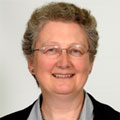
'It's as if you've got a little house in your mind and occasionally you come across an idea that doesn’t just move the furniture around, but it actually moves the walls and creates whole new spaces in your mind.'
Listen to Susan Hunston as she talks about:
- how corpus linguistics is changing
- becoming and staying interested in linguistics
- areas she wishes she had time to explore
- what she enjoys most about being a linguist
>> Read the transcript (PDF)
John Field
About John Field
John Field teaches psycholinguistics, child language and English grammar at the University of Reading, and he is also attached to the School of Education at the University of Cambridge. He is the founder of the BAAL Psycholinguistics Group, a member of the Advisory Board of the Subject Centre for Languages, Linguistics and Area Studies (LLAS) and a member of BAAL Executive Committee. He has taught at a number of UK universities and lectures widely on L2 listening and on the implications of psycholinguistics in second language acquisition. He has worked as a teacher trainer, materials writer and syllabus designer in many parts of the world and is the author of Listening in the Language Classroom, which won the 2008 Ben Warren International House Trust Prize.
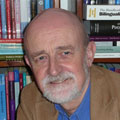
'I began to think about ways in which we might actually try to tackle the process of listening rather than just test learners on whether they had roughly understood a text.'
Listen to John Field as he talks about his latest research, including:
- how he became interested in the skill of listening
- tips for practising listening
- how the teaching of listening will develop in the future
>> Read the transcript (PDF)
Regina Weinert
About Regina Weinert
Regina Weinert is originally from Hamburg, but moved to Scotland after leaving school and has been based in the UK ever since. She has taught at the Universities of Edinburgh and Hull and has been at the University of Sheffield since 1996, where she is Reader in Germanic Linguistics. Her research spans theoretical linguistics, general linguistics and theoretical and descriptive German and English linguistics, as well as language acquisition. Her recent work involves a comprehensive analysis of spoken language syntax, pragmatics and discourse.
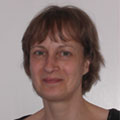
'Spoken language is primary in human beings and to me it's therefore crucial to an understanding of the human capacity for language.'
Listen to Regina Weinert as she talks about her background and research:
- Her fascination with the spoken language
- Identifying areas for research
- The benefits of studying linguistics
- Tips for early-career academics
>> Read the transcript (PDF)
Rose Senior
About Rose Senior
Rose Senior is Senior Honorary Research Fellow at the University of Western Australia in Perth, Australia. She has taught English in Colombia, the UK and Australia. She has published a number of articles in academic journals including ELT Journal and has a regular column in English Teaching Professional. She is the author of the award-winning The Experience of Language Teaching (2006), which describes communicative language teaching from the perspective of EFL, ESL and foreign language teachers.
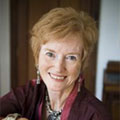
'Students want a teacher who knows their stuff, who is an expert in their field as a language teacher; but also they want somebody who can actually develop a relationship with them both individually and with the class as a whole.'
In this podcast Rose Senior talks about 'becoming an expert teacher'.
- Class-centred frameworks
- Using teacher strengths and developing weaknesses
- Experienced and expert teachers
- The role of humour in the language classroom
Andy Kirkpatrick
About Andy Kirkpatrick
Andy Kirkpatrick is currently Head of the Department of English at Hong Kong Institute of Education and sits on the international editorial board of The New English Teacher. He is author of World Englishes, Implications for International Communication and English Language Teaching (2007). From 1997–2005 he was Professor of Language Education at Curtin University in Perth, Western Australia. He developed and wrote the World Englishes unit currently taught at Curtin. He is a specialist in "China English" who has taught in mainland China, Hong Kong and Taiwan as well as in Australia, England, Myanmar and Singapore. He was editor of English Australia Journal from 1999–2004.
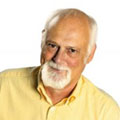
'Learners need local models of English that are relevant to them.'
Andy Kirkpatrick talks about models of English and their relevance to classroom teaching.
- Kachru's concentric circles
- Exonormative and endonormative models
- Challenging current teaching policies
- Multilingual versus monolingual teachers
Vodcasts
Do Coyle
About Do Coyle
Do Coyle has been Professor of Learning Innovation at the University of Aberdeen since summer 2008. She came to Aberdeen from the University of Nottingham, where she was Associate Professor of Education, Co-Director of the university's CETL-Visual Learning Lab and member of the Learning Sciences Research Institute. Professor Coyle is an international expert in CLIL and has played a major role in the European movement associated with bilingual and modern languages education. Working towards the 'borderless classroom', she has created innovative approaches to video conferencing using the Teaching and Learning Observatory concept. She is a member of the international research group on learning strategies (IPOLLS), the European research group for CLIL (CLILCOM) and is guest editor of the International Journal of Bilingual Education and Bilingualism.
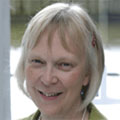
'We've got to be looking at challenging learning and challenging learners.'
Watch Do Coyle as she discusses aspects of CLIL:
- Defining CLIL
- The recent growth in CLIL
- The benefits of CLIL for teachers and learners
- The CLIL methodology
Watch the video below:
